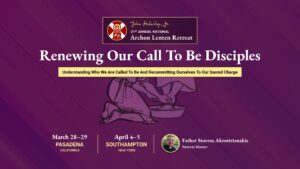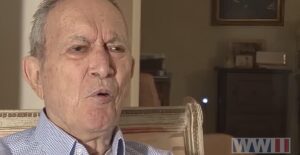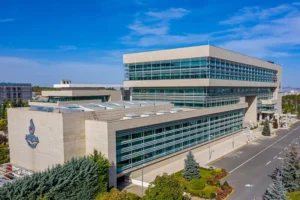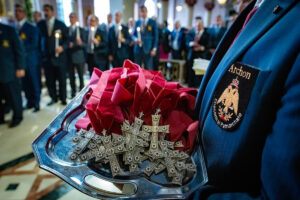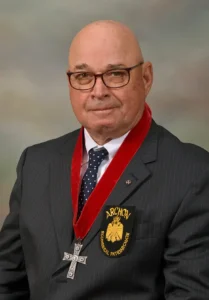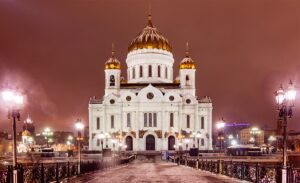Dusan Kozarev, Deputy-Director in the Office for Kosovo and Metohija of the Government of the Republic of Serbia, gave this report to the Organization for Security and Co-operation in Europe (OSCE). The information he gives about the persecution of Orthodox Christian Serbs in their ancestral homeland is deeply disturbing. But whether his report will move the world to concerted action to protect the Christians of Kosovo is an open question.
“Statement of Serbia’s delegation to the OSCE about persecution in Kosovo,” OSCE, September 24, 2019:
OIDHR (24.09.2019) – https://bit.ly/2lFNdYv – Good afternoon, I am Dusan Kozarev, Deputy-Director in the Office for Kosovo and Metohija of the Government of the Republic of Serbia. It is my honour to speak at this Panel on Tolerance and Non-Discrimination, and I intend to inform you of an unacceptable discrimination still being enforced on the European soil against the Serbian people in the Southern Serbian Province of Kosovo and Metohija. There, the fundamental human rights of Serbs are being routinely violated, including the rights to life, to movement, to property, to belonging, to their ethnic and religious community. There are no positive developments to report since the previous OSCE Human Dimension event in Warsaw; moreover, the situation worsened. We are witnessing intensified intimidation aimed both at compelling Serbs to leave Kosovo and Metohija and preventing the displaced ones to return. There were some 70 ethnically driven attacks against Serbs, throughout the course of the year behind us.
In October 2018, during a single night in the Municipality of Klina, Albanians broke in 25 homes of Serbian returnees. Few days later, in the Municipality of Peé a Serbian home was set on fire. Pristina exerts, tolerates, and faits to sanction various pressures against Serbs, and this effectively hinders their return.
November 2018 was the harshest period for the Serbs in that year. Firstly, on 6 November Pristina introduced 10% taxes on the incoming goods from Central Serbia and Bosnia and Herzegovina, and then on 21 November increased the taxes to 100%, as an unprecedented move in recent history, despite the regional free-trade agreement in force (CEFTA). This Pristina’s anti-civilizational measure disrupted the regular supply of food, medications, technical supplies, the basic hygiene commodities. Besides this targeted economic isolation, the Serbian community was exposed to additional concerns caused by incursion of the Special Unit ROSU in the northern Kosovska Mitrovica, raiding several sites and arresting four Serbs under false charges of their alleged involvement in the assassination of Serb politician Oliver Ivanovié. The true executors of this heinous crime are still not identified.
December 2018 saw a repeated practice of intimidation of Serbs by writing “KLA” graffiti in the Municipality of Lipljan on the walls of: an elementary school, a Serbian-owned home, a chape) at the local Orthodox cemetery, and the local Monument of Fallen Serbian Fighters in the Liberation Wars. For Serbs, “KLA” graffiti epitomize crimes committed by this terrorist organization during the fighting.
In January 2019, in the vicinity of the Monastery of the Assumption of Mother of God, some hundred Albanians gathered for their regular annual preventing the former, now-displaced, fellow citizens from Dakovica to celebrate Christmas Eve and Christmas Day. Pristina’s true nature was revealed by their seizure of the New Year’s and Christmas gifts for Serbian children from Gorazdevac and Osojane. In February, near Orahovac, the memorial plaque marking the place of abduction of TV journalists Duro Slavuj and Ranko Perenié in August 1998 was removed, for the seventh time. Shortly thereafter the St. Trinity Church in the Municipality of Urosevac was plundered and desecrated.
During March and April 2019 the usual practice of theft of Serb-owned property, from seedlings to livestock to vehicles and tractors, was continued. A church in the village of Suvi Do was plundered and desecrated. Harassment of Serbs at the checkpoints went on, and the Kosovo Police banned entry to the FC Novi Pazar Juniors, bound for a match in Zubin Potok. The police also continued the arrest of Serbs from the secret list of indictments for alleged war crimes.
Full force of brutality of the Kosovo Police exploded in May 2019 when its special units raided four northern Municipalities with Serbian majority population. Their six-hour violent action almost provoked a serious armed interaction. Contrary to the provision that any north-bound action has to be sanctioned by Police Commander for the North and KFOR, this one was carried out without prior notice, in a three-pronged incursion aimed at intimidating, stirring panic, and arresting persons under charges of alleged organized crime. Tear gas, shock bombs, and live ammunition were used against civilians. 28 persons (19 KPS officers and 9 civilians) were arrested. Also arrested were two UNMIK staff under diplomatic immunity, including Russian citizen Mikhail Krasnoschhenko who was also severely beaten up.
Let me recall that back in March 2018, those same special units arrested Marko Durié, Director of the Office for Kosovo and Metohija and Head of Negotiating Team with Pristina. By arresting and beating of Lead Negotiator of the Republic of Serbia, and arresting and beating of an international mission staff, Pristina sends a crystally clear message to the remaining Serbs: “If we dare do this to persons protected by diplomatic immunity, just imagine what we dare do to you. Leave!”
In response to the special forces raiding the North of Kosovo and Metohija, President of the Republic of Serbia Aleksandar Vucié pre-emptively ordered full combat readiness for ail units of the Serbian Armed Forces. However, as the Republic of Serbia stayed true to being committed to peaceful solution of problems in this instance, too, this incursion did not evolve into an ail-out armed conflict. For Belgrade, threatening the Serbian lives in Kosovo and Metohija is the “red line”. The international community, sadly, remained very quiet.
August 2019 saw another blatant discrimination against Orthodox Serbs in Kosovo and Metohija, in hoisting the so-called Kosovo flag on the walls of Serbian medieval town of Novo Brdo, as an act of gross revision of history. The Novo Brdo Fort is among key Serbian historic and archaeological sites, and any Albanian attempt to appropriate it is but an act of forging history and aimed at the deepening the inter-ethnic abyss in Kosovo and Metohija. Obviously; the Serbian cultural heritage in Kosovo and Metohija is in a dire need to be protected.Albanians seek to go beyond mere plundering and destroying Serbian shrines and heritage, they seek to fully usurp and falsify Serbian history and, eventually, erase any trace of existence of Serbs in the area of Kosovo and Metohija.
Another danger, both for Serbs and for Albanians, is the return of battle-hardened fighters from the battlefields in Syria and whole Middle East. According to the State Department report for 2017, 403 Albanians from Kosovo and Metohija went to war for terrorist organization dubbed Islamic State in Syria and Iraq, it is estimated that more than 250 ISIS fighters returned to Kosovo and Metohija, posing a real danger for the Balkans and Europe. Presently, one of the last remnants of Jihadist struggle in Syria is an all-Albanian unit, called Jamati Alban. According to Albanian media, more than 50,000 people in Kosovo and Metohija practice Wahhabism, the most radical form of Islam.
In spite of this all, the Republic of Serbia remains patient and prudent, committed to dialogue and peace and to a compromise-oriented settlement of the centuries old Kosovo knot, and to enhancing cooperation in the region.

